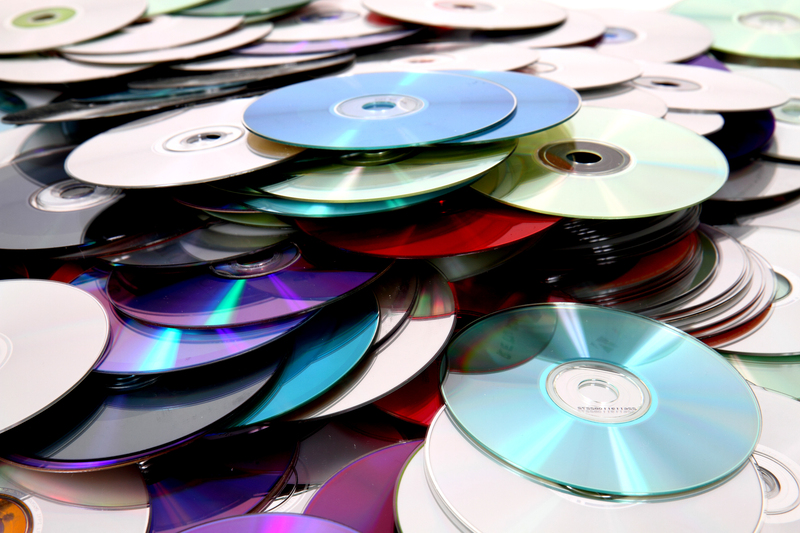Donating, Disposing, and Recycling Your Used Pots and Pans: The Ultimate Guide
Pots and pans are among the most frequently used items in kitchens worldwide. Over time, however, they can accumulate and often become worn out, damaged, or simply replaced due to upgrades. If you've recently renovated your kitchen or just want to declutter, you may wonder what to do with your used pots and pans. Should you throw them away, recycle, or donate them to someone who could use them? Taking the time to consider the most environmentally responsible and charitable options can make a big difference. In this comprehensive guide, you'll learn how to properly donate, dispose of, and recycle your old cookware.

Why It Matters: The Environmental Impact of Cookware Disposal
Before tossing your unwanted pots and pans into the trash, it's important to recognize the ecological consequences. Many kitchenware items, especially those made from non-stick materials, aluminum, copper, or stainless steel, don't break down easily in landfills. Metal and non-stick coatings can remain in the environment for decades, and harmful chemicals can leach into the soil and groundwater.
- Metal takes centuries to decompose: Stainless steel, aluminum, and copper are all highly durable materials that can last for hundreds of years in a landfill.
- Non-stick coatings can release toxins: Pans with Teflon or other non-stick surfaces can leach chemicals as they sit in the waste stream.
- Natural resources are wasted: When pots and pans aren't recycled, the valuable resources used to produce them are lost.
With these facts in mind, let's explore how you can give your used cookware a new life while reducing your environmental impact.
Step 1: Assess the Condition of Your Pots and Pans
The first and most crucial step is to evaluate the state of your used cookware. Ask yourself:
- Are they still functional? (Handles secure, bottoms flat, no major dents)
- Do they have visible damage? (Warping, cracks, deep scratches, or severe peeling of non-stick coating)
- Are they clean and free of residue?
If your old pots and pans are still in good shape, you may be able to donate them. If they are heavily worn, then recycling or proper disposal might be more appropriate.
Donating Used Pots and Pans: Giving Back
Who Accepts Donations?
Many organizations and individuals appreciate gently used cookware. Consider the following options before discarding your old pans and pots:
- Charity Shops and Thrift Stores: Places like Goodwill, The Salvation Army, and local non-profit thrift stores often accept cookware in good condition.
- Homeless Shelters and Food Banks: These facilities may need pots and pans for their on-site kitchens or for individuals moving into transitional housing.
- Community Centers: Sometimes, educational or community centers run cooking classes and can use extra supplies.
- Online Giveaways: Use platforms such as Facebook Marketplace, Craigslist's "free" section, or Nextdoor to gift usable items to neighbors.
- Refugee and Immigrant Organizations: Many groups support families resettling in new communities and often need household goods.
Donation Tips
- Ensure all items are thoroughly cleaned and free of food residue.
- Check with the chosen organization for specific donation guidelines.
- Pair items in sets if possible, as sets are usually more useful and appealing to recipients.
- Be honest about condition -- do not donate items with loose handles, broken pieces, or severely scratched non-stick surfaces.
Donating your used pots and pans is a wonderful way to give back to your community and keep functional items out of the waste stream.
Recycling Pots and Pans: Giving Metal New Life
Which Pots and Pans Can Be Recycled?
Most metal cookware, including stainless steel, cast iron, copper, and aluminum, can be recycled. However, the manner of recycling depends on the material and local recycling regulations.
- Stainless Steel and Aluminum: Commonly accepted at scrap metal recycling facilities.
- Cast Iron Pans: Known for their durability, they are highly recyclable.
- Copper Pans: Copper is a valuable metal, and most scrap yards will take them even if the pan is heavily used.
- Non-stick and Teflon-coated Cookware: These are trickier. If the pan is severely damaged, many municipal recycling programs will not accept them because of the coating; they may have special drop-off instructions.
How to Recycle Used Cookware
- Contact Local Recycling Centers: Call ahead to see if they accept household cookware and what preparation is required (some require you to remove plastic or rubber handles).
- Search for Scrap Metal Yards: Many towns have scrap yards that will accept metal pans and pots even if the non-stick coating is present (though some may pay more for uncoated metal).
- Use Retailer Take-Back Programs: Some kitchenware retailers offer recycling programs. For example, some chains allow customers to drop off old cookware when buying new items.
- Utilize Community Recycling Events: Occasionally, neighborhoods host zero waste events where you can bring hard-to-recycle items like pans, electronics, and small appliances.
Preparation Steps for Recycling
- Remove all food residue and wash the cookware.
- Take off plastic, rubber, or wooden handles, as most recycling centers only want pure metal.
- Separate pans by material (aluminum, steel, iron, copper) if possible, as this speeds up the recycling process at scrapyards.
Remember: Proper recycling of your unused cookware helps preserve natural resources, reduces greenhouse gas emissions associated with mining and manufacturing, and minimizes landfill waste.
Disposing of Pots and Pans That Can't Be Donated or Recycled
Unfortunately, some used pots and pans are beyond repair, reuse, or recycling eligibility -- especially if they contain extensive damage, cracked non-stick coatings, or non-removable plastic elements. In these cases, responsible disposal is important.
Responsible Disposal Options
- Bulk Waste Pick-Up: Many municipalities offer scheduled bulk waste pick-up. Inquire if pots and pans can be included and whether specific preparation is necessary.
- Landfill as Last Resort: If there are no alternatives, contact your local landfill. Give preference to recycling or upcycling options whenever possible.
- Household Hazardous Waste Programs: For cookware with toxic components (such as damaged Teflon), ask if your community hazardous waste drop-off accepts them, as these coatings should not enter the regular waste stream.
Pro Tip: Before throwing any cookware away, check with your city's solid waste department or waste management website for the most up-to-date and environmentally friendly guidance.
Upcycling and Repurposing Old Pots and Pans
Beyond recycling and disposal, some creative people have discovered ingenious ways to give old pots and pans a second life. If you're a DIY enthusiast or want to reduce waste through upcycling, consider these inventive ideas:
- Garden Planters: Drill holes for drainage and use deeper pots or pans as charming outdoor planters for herbs and flowers.
- Wall Art or Clocks: Turn an old pan into a decorative wall clock or rustic kitchen art piece.
- Storage Containers: Use pans to organize small tools, screws, or nails in your garage or workshop.
- Bird Feeders: Hang old frying pans from trees to create unique bird feeders.
- Kids' Play Items: Clean, lightweight pans can become part of a play kitchen or be used for sand and water play.
- Candle Molds or Bases: Larger pans make perfect molds for homemade candles or as bases for pillar candles.
With a little creativity, your old cookware might have many lives beyond the kitchen!

Common FAQs About Donating, Disposing, and Recycling Cookware
- Can you put pots and pans in curbside recycling?
Typically, no. Most municipal curbside recycling programs do not accept large metal items or household cookware. Always check with local facilities to find the correct drop-off points. - Can I donate non-stick pans?
Yes, if they are in good condition (no peeling, flaking, or major scratches). Damaged non-stick pans are best recycled or disposed of safely. - Is it safe to recycle pots with plastic handles?
Remove any non-metal components (handles, lids, knobs) before recycling for best results, as most scrap facilities only accept clean metal. - What about vintage cookware?
Vintage or collectible cookware (like old cast iron skillets) may have value to collectors or specialty shops. Consider selling or donating to organizations that appreciate their historical importance. - Can broken or warped pans ever be fixed?
Some cookware can be repaired (welding broken handles, re-seasoning cast iron), but often severely warped or cracked pans are best recycled or disposed of responsibly.
Conclusion: Making the Smart & Eco-Friendly Choice for Your Used Cookware
As you upgrade your kitchen or reduce clutter, remember that donating, disposing, and recycling your used pots and pans is more than a chore -- it's an opportunity to support your community and the environment. Here's the ideal process:
- Assess condition: Can you donate, recycle, upcycle, or must you dispose?
- Choose donation if still usable: Many people and organizations welcome gently used cookware.
- Recycle non-donatable pots and pans: Utilize local scrap yards or special recycling programs.
- Get creative: Upcycle for home, garden, or art purposes.
- Dispose responsibly: As a last resort, follow local waste guidelines.
Every small effort counts. By managing your used cookware sustainably, you reduce landfill waste, save resources, inspire creativity, and might just brighten someone else's kitchen.
Start today -- donate, recycle, and dispose of your used pots and pans the smart, responsible, and eco-friendly way!
